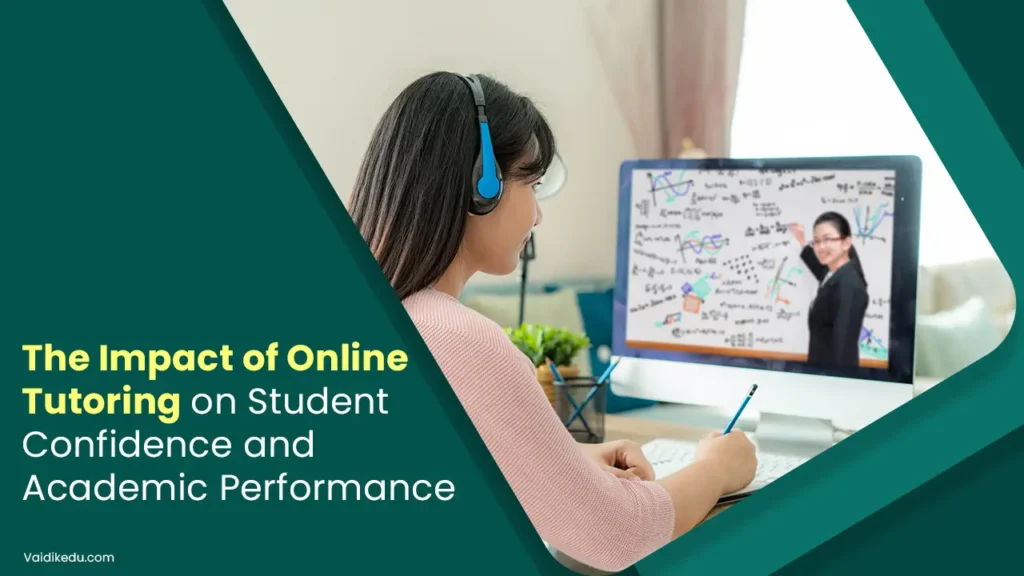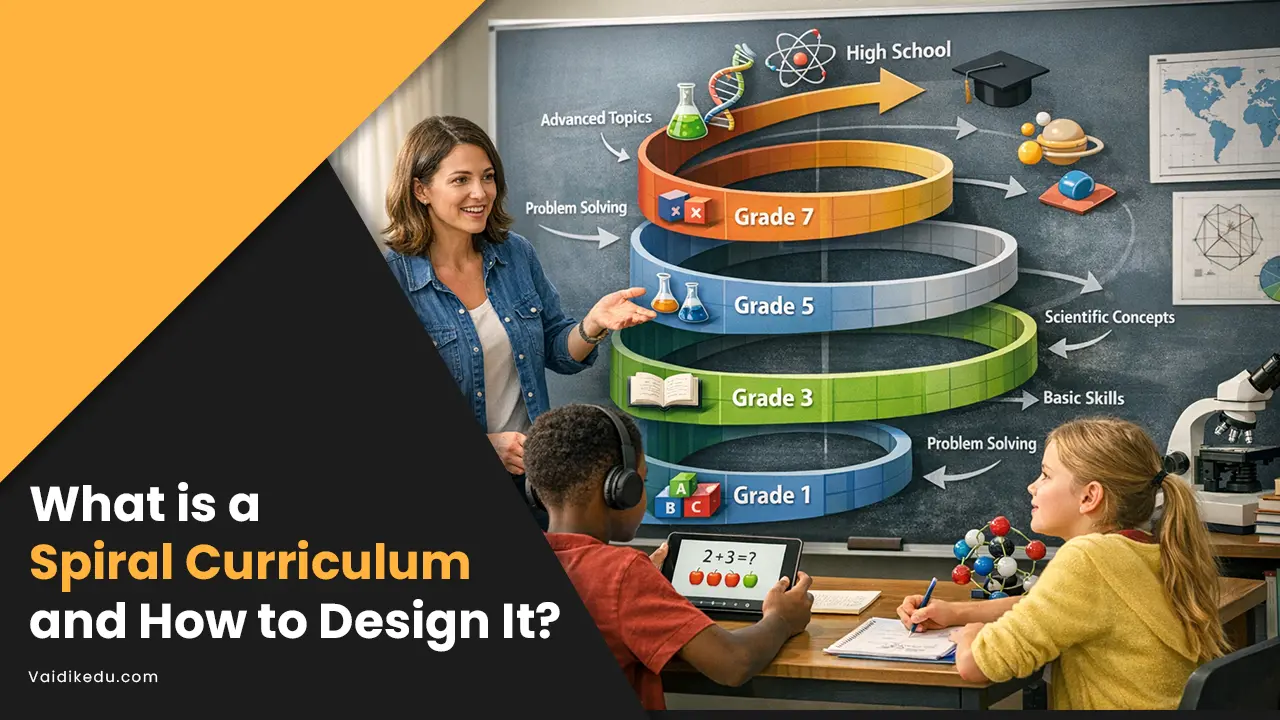Although this is a relatively recent phenomenon, tutoring has revolutionised education because of its transformative effects on how students access and interact with learning.
Online tutoring is not necessarily face-to-face instruction but uses technology to provide more personalised, flexible and interactive educational experiences. It has grown due to the increase in digital platforms that enable easily accessible and tailored learning opportunities.
A key issue of interest in this domain is the impact of online cluttering on students’ confidence and academic performance. Student confidence develops a positive ambience for study, as students are motivated, participate, and achieve.
The academic performance index is a tangible assessment of a pupil’s mastery of subject materials. Indeed, the relationship between these two elements and online tutoring is increasingly researched because this medium promises to address personal learning in a personalised setting effectively.
Once this relationship is understood, it hopes to investigate how online tutoring helps build student confidence and improve academic performance. Educators, parents, and policymakers will then be better empowered to appreciate the ability of these online learning tools to foster holistic and all-rounded student development.
Online Tutoring: An Overview:
Such practice has revolutionised the education field as it is now an alternative to sitting in a conventional classroom. Online tutoring utilises digital interfaces and tools by which lessons get delivered by guiding with well-directed instructions from an external location over the Internet using advanced technology within reach of everybody in this digitally advanced world to students spread everywhere around the globe.
These will include video conferencing, whiteboards, instant chats and all the digital tools for learning at once convenience. Such services allow students and tutors to connect in real-time.
Moreover, learning is not done in a “one size fits all” format because it is aligned with individual preferences and pieces. Platforms like Zoom, Google Meet, Chegg and tutor me provide better interfaces for connecting students with tutors globally.
The advantages of online tutoring are numerous. It offers flexibility, where the student can schedule sessions at their convenience. It saves travel time and resources. Online tutoring also often provides progress, tracking and assessments. So, tutors can make lessons more relevant to a student’s strengths and weaknesses.
Online tutoring also caters to a diverse range of needs, from support for students struggling academically to enrichment programmes for students interested in advanced learning.
This mode of instruction has been found preferable by many students and parents due to its scalability and accessibility, especially at a time when digital education is fast becoming the accepted norm.
Factors Influencing Student Confidence:
Student confidence influences and affects motivation and drives enthusiasm to learn, become engaged, and successfully achieve what’s expected and aspired within the school.
Unique online tutoring systems possess the necessary capability to enhance student self-esteem significantly. More significantly, one should note how there are essential factors related to this enhancing feature:
1. Personalised Attention And Support: Online tutoring usually offers one-to-one or small group sessions, during which the tutor gains exclusive attention to ensure the student receives the needed coaching.
Individualised caring and support arrangements help students realise they deserve appreciation and understanding for their weaknesses and learning deficits. When coupled with tailored guidance, overcoming such difficulties builds confidence.
2. Flexible And Comfortable Learning Environment: Not having pressure and anxiety in a traditional classroom environment. The comfort of learning from the convenience of their own homes removes the pressure and anxiety of students.
Free asking of questions without fear of judgement in online tutoring creates a safeguarded space for developing such self-assurance.
3. Constructive Criticism And Appreciation: Positive tutors give constructive feedback and encourage students to build their self-esteem.
Acknowledging little accomplishments and successes gives them a feeling of accomplishment, making them proud and inspiring them to strive for further success.
4. Learning At A Paced Time: Unlike school classes, online tutoring ensures students set their speed. Students who will take time with specific topics in class are now given the opportunities and resources to work on them without timidity. All this flexibility can reduce frustration and make them feel able to understand these complex concepts.
5. Interactive Tools And Technology: Interactive tools such as virtual whiteboards, quizzes and gamified learning platforms make the sessions engaging and enjoyable. These tools enhance comprehension and participation, and students become confident as they actively participate in learning.
The Relationship Between Online Tutoring And Academic Performance:
Unlike classroom teaching, online tutoring has successfully positioned itself as a potent means of achieving academic excellence along the parameters set by student needs. This platform has made learning more student-centric and individualised as further learner strengths.
Weakness is one learning space. It brings concentration to the weak areas so that students grasp the ideas thoroughly and recall them on the first attempt.
More online systems ensure that real-time feedback and constant assessments allow students and instructors to track better. Immediate correction and guidance help students build better knowledge, thus promoting improved academic performance.
Students can engage more readily with it because it is interactive and uses video quizzes and other gamified activities. Highly engaging will make learning enjoyable while actively contributing to developing the knowledge needed to understand complex matters.
Furthermore, online tutoring addresses gaps in education because, outside the structured classroom setting, students have ample time to reflect on content areas that are problematic to them.
Thus, targeted support enables students to come better prepared for exams and assignments, significantly improving their grades and test scores.
The other significant benefits of online tutoring are flexibility and accessibility. Students can schedule their sessions at convenient times and hence do not go through stress.
They can focus more effectively on their studies by connecting to subject matter experts worldwide. They improve their knowledge and are exposed to different learning methodologies.
Many studies indicate the consistent academic success of students who engage in online tutoring with significant improvements in test scores and overall grades.
Further, online tutoring stresses deep learning instead of road memorisation. Students can fully master the subjects at hand, which enhances their confidence and prepares them for solving complex problems later on.
Long-term academic benefits, extending beyond the classroom, are developed through online tutoring skills and habits such as critical thinking, time management and self-discipline.
Online tutoring empowers students to achieve what they feel like achieving by providing tailored support to build a better understanding of subjects.
Challenges And Limitations:
Online tutoring has many advantages, but it also has several disadvantages and technical problems. Some of these are slow Internet connectivity, lack of access to reliable devices, interrupted sessions, and unavailability in remote areas, mostly in poor areas. The tutors cannot read the students nonverbally because they cannot meet face to face, which can hinder communication and comprehension.
For example, physical presence and isolation may create less concentration and decreased student motivation. Although the same human being is posted online, topics involving hands-on experience, such as science and art, are mainly not experienced online. Tutoring quality will vary from one tutor to another, depending on their background and ability to use digital tools better.
Role Of Tutors in Enhancing Confidence And Performance:
Tutors are critical to developing confidence and academic performance among students. Particularly with online learning, the entire stock can give students focus retention and custom guidance in overcoming particular learning problems, which is crucial for raising self-esteem and motivation.
Tutors help create an environment that allows students to feel comfortable asking questions and voicing their doubts; this environment inspires trust and encouragement and directly contributes to their confidence.
In addition, constructive feedback provided by tutors helps students identify areas where they have made progress and where they can improve. Feedback and positive reinforcement embolden students to take charge of their learning and improve.
In teaching, adapting methods according to different learning types guarantees efficient capture of complex concepts and improves students’ general performance.
In addition, interactive tools and strategies keep students on the go by the cutters, making learning enjoyable. Inspiration and motivation from tutors increase academic results, but they instill lifelong learning by giving consistent support and encouragement. A tutor is seen as a mentor who creates the skills and confidence needed for success in the long run.
Frequently Asked Questions
Online tutoring enhances student confidence by providing individualised, one-on-one attention that enables the student to overcome challenges in learning at a pace they feel comfortable with. Tutors offer constant encouragement and constructive feedback to improve self-esteem and motivate students to be more proactive in their studies.
Yes, it does improve the student’s academic performance. This online tutoring lets the students focus on areas that require the most attention, customised lesson plans, immediate feedback, and resources for learning. All these contribute to better understanding and mastery of subjects, improving grades and test scores.
Online tutoring provides flexible scheduling, allowing learners to access these study sessions conveniently. It also offers access to any expert cuter located anywhere in the world and facilitates the use of interactive tools to enhance learning engagement. It also encourages personalized learning according to specific educational needs, which is often more effective for students.









